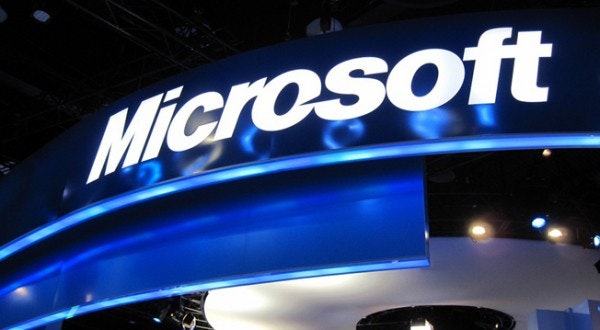Shares of Microsoft Corporation (NASDAQ:MSFT) took investors on quite the ride this week, but even though they plummeted more than 4.42% in just one day, they still managed to end the week higher than were they began. Do investors have anything to worry about? Let’s take a look.
So what happened?
On Monday, Microsoft Corporation (NASDAQ:MSFT) dropped by 0.38%, after the company announced that it was selling its IPTV business to Ericsson. The terms and price of the deal weren’t disclosed, but it was estimated to sell for somewhere between $100 million and $234 million. The IPTV unit creates software that gives wireless device manufacturers the ability to deliver television signals over the Internet.

Tuesday came along, and shares were flying high, up 3.57%, with a few analysts crediting Microsoft Corporation (NASDAQ:MSFT)’s attacks on Google Inc (NASDAQ:GOOG) for the rise. Microsoft and a number of other technology companies are claiming Google’s open-source operating system gives it an unfair advantage over the competition. The main problem is that Google gives its operating system away, and Microsoft, which charges for its operating systems, can’t compete. The EU is looking into Microsoft’s allegations against Google Inc (NASDAQ:GOOG), but we’ll have to wait and see who wins this battle.
Also on Tuesday, the company announced that it’s teaming up with Cisco Systems, Inc. (NASDAQ:CSCO) to help customers reduce complexity while enhancing IT productivity and business agility. The partnership is currently just focused on data centers and how to improve and grow operations in that area of business.
On Thursday, the IDC released its PC shipment figures for the first quarter of 2013, and they were terrible. Sales dropped 14% in the quarter, while analysts were expecting a decline of only 7.7%. Microsoft Corporation (NASDAQ:MSFT) tumbled 4.42% on the news and sent the PC manufacturers even further down than that.
So what now?
Year to date, Microsoft is the sixth worst-performing component of the Dow Jones Industrial Average (INDEXDJX:.DJI) during 2013, but based on my colleague John Maxfield’s calculations, it’s only the 14th most shorted Dow component, which would indicate that although the stock hasn’t performed fantastically so far this year, most market participants don’t think the stock is going to crash, either. (To see John’s full list and how much of each Dow component is sold short, click here.)
Although the current trend clearly indicates that PC sales will probably continue to decline over time, it’s clear that as a whole, the market hasn’t lost faith in the company yet, and individual shareholders also shouldn’t sell at this time.
While the company is best known for its Windows operating system, that’s now become just a small piece of the modern-day Microsoft Corporation (NASDAQ:MSFT). The company has a number of different revenue streams today:
| Sector | Revenue | Operating Income (Loss) |
|---|---|---|
| Windows | $5,253 | $2,671 |
| Server and Tools | $5,191 | $2,129 |
| Online Services | $893 | ($283) |
| Microsoft Business | $6,491 | $4,367 |
| Entertainment and Devices | $4,149 | $937 |
| Other | ($521) | ($2,050) |
Information found in Microsoft Corporation (NASDAQ:MSFT)’s most recent 10-K (revenue and operating income for three months ending Dec. 31, 2012). Figures in millions.
Futhermore, look at all the different things that changed the stock price this week alone. That alone illustrates how the company has a ton of moving parts and different revenue streams. The management team has taken a company that once just built software and turned it into a technology giant with its fingers in a lot of pies.
